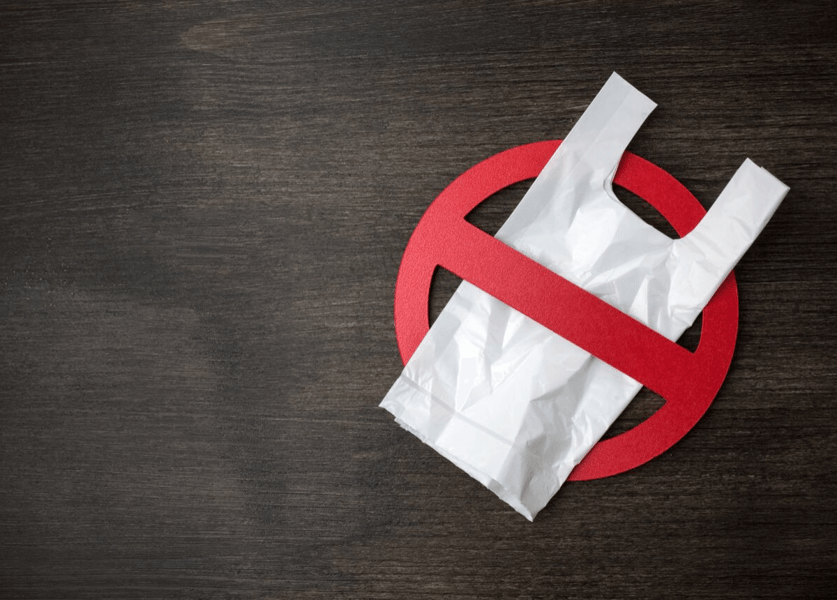Everything About Plastic Bag Ban and Fee Compliance
Retail Keneavy Krenzin
Keneavy Krenzin

Plastic bags have been a staple of the American consumer since they were introduced into the grocery industry in the early 1980’s, with Kroger and Safeway first distributing them in 1982. Since then, they have become commonplace, with Americans using over 100 billion plastic bags per year, or about 1,500 bags per household. These bags have cost all retailers approximately $4 billion annually, yet only 3% of the bags are recycled.
Forty years later, plastic bags have become a global environmental problem. States and municipalities are leading the way with new regulations to ban or limit them, with some even charging for plastic bag alternatives. These legislative measures are meant to cause a change in consumer behavior. However well intentioned, these measures mean that retailers must comply with a complex matrix of laws and regulations while trying to avoid lost revenue or unnecessary costs.
Plastic Bag Ban laws
Plastic bag ban laws vary widely in their specifications and these laws are constantly changing. The Retail Compliance Center provides an interactive map that details the current status of bag ban laws.
Many plastic bag ban laws are also implemented with a mandated charge for alternative bags like paper or other reusable types of bags. This charge is meant to offset the greater cost of paper and reusable bags for the grocers/retailers, while ensuring that these additional costs are rolled into the price of groceries the way retailers had traditionally done with plastic bags. This ensures that customers who bring their own bags don’t have to supplement the cost of other shopper’s bags anymore while also encouraging shoppers to bring their own reusable bags.
California, one of the first to implement a ban on all single-use plastic bags at large retail stores, has provided a website to educate consumers on alternatives to plastics bags and how a $.10 charge for alternative bags will be implemented. The site includes a study from Portland, OR showing “free” paper bags used in place of plastic bags resulted in a 491% increase in the use of paper bags while increasing costs to retailers by $5 million. However, for LA County, the $0.10 per bag charge reduced paper bag usage by 30% and offset retailers’ bag costs by over 75%.
Over 30 states have adopted some type of bag ban but complying with the myriad of restrictions can impose new hardships on retailers.
Exemptions and Compliance
Plastic bag laws vary by state, county, city and type of goods. In general, they ban single-use plastic bags for purchases, but may have additional restrictions for retailers and grocers, including bag charges. For instance, here is a comparison of how laws can differ by location based state and local ordinances.
ANCHORAGE, ALASKA. Effective 9-1-2019
Stores Affected: All Retailers
Bag Charge: Retailers must charge $0.10 - $0.50 for non-plastic bags, such as paper.. Reusable bags designed for repeated use may be sold by retailers or provided without a fee.
Bag Types. Bags used to contain products that are already packaged and sealed are banned. Bags used for fresh flowers, damp items, newspapers, unopened wine, and dry cleaning are exempt.
LOS ANGELES, CALIFORNIA. Effective for large stores 2011 and small stores 2012
Stores Affected: Large and Small Stores
Bag Charge. Minimum $0.10 for recyclable paper bags and stores can keep the money. Bags are free for WIC and SNAP customers, but the total bag charge must appear on customer receipt. Quarterly reports are due to the Department of Public works each quarter, listing total recyclable bags provided (including free of charge), monies collected, and efforts to promote recycling of single use items. Stores may provide reusable bags for sale or for free.
Bag Types. Single use plastic bags are banned. If recyclable bags are provided, there are extensive restrictions that include not more than 40% old growth fiber content, printed name of manufacturer on the bag, and other restrictions. If recyclable bags are provided, they must meet a 125 use requirement and include a handle. Excluded bags include pharmacy bags and bags used for produce or meat.
Not all states are in acceptance of such laws. In 2018, several Texas cities including Austin and Laredo stopped enforcement of their 5-year-old bag ban ordinances after a state supreme court ruling deemed these laws to violate state laws for solid waste. Compliance is now optional and environmental groups continue to work with retailers to voluntarily reduce usage of single use plastic bags.
How to stay compliant
State laws and ordinances require changing consumer behavior to become more aware of the impact of plastic bags and to find alternative ways to transport their purchases. While providing alternative reusable bags is a good alternative, additional signage and reminders can be printed in the languages of their customer base. A Unilever study reported that one third of consumers prefer to do business with brands that are socially and environmentally aware, so eliminating plastic bags may make a positive impact on customers.
These bans have also revealed how plastic bags are used by consumers at home. One frequent use was for pet waste and for household trash. One California researcher found stores had 120% increase in sales of small, 4 gallon trash bags, indicating that consumers required a replacement for the banned bags. Offering alternative use items may be an opportunity for retailers to market products and train staff members to help customers with their trash disposal needs.
Given the complexities of state and local ordinances, retailers will need to reconfigure their POS systems to comply with these ordinances. These changes will include:
Bag Charges: For retailers required to charge for bags, POS systems must be in place to capture and charge for bags. In one case, Agilence’s 20/20 Data Analytics Platform was able to identify over $64,000 in bag charges that were not rung up across multiple locations of a California grocery retailer. This could amount to over $750,000 in annual recaptured revenue. Improving bag charge compliance can be as easy as installing an extra key on the register system and retraining team members to charge for bags.
State Compliance Reporting: California requires that retailers provide a quarterly report of bag sales for WIC and SNAP members that includes both purchased and free bags. Creating these reports can be cumbersome, but with the right POS data, reports can be timely, accurate, and help retailers avoid penalties.
Ordinance Variances: For retailers with multiple locations in the same state, POS systems are critical to tracking bag charges and reporting by location. POS systems need to comply with ordinances that vary from city to city or county to county. Ensuring that your POS systems are up to date will reduce the amount of time, effort, and training necessary to keep up with changing ordinances.
Reusable Bag Inventory: Retailers must track the sales of alternative bags and associated bag inventory. This includes traditional inventory forecasting, but also ensuring that bags are in compliance with state laws for recyclable content and manufacturing requirements. Recyclable bags are often sold for a loss, making it critical to have the right systems in place to track purchases, forecast need, and control loss.
Tracking Good Works. Denver-based Natural Grocers eliminated over 300 million single-use plastic bags and donates $.05 cents to local food banks every time a customer uses a reusable bag. They’ve been able to donate over $1 million dollars to food banks in the ten years since its inception. Tracking bag contributions via POS systems may also be vital to stakeholders outside your organization.
Are your POS systems “ban-compliant”?
Agilence provides big data solutions to help retailers use data to identify opportunities for increased revenue, lower costs, and enhanced compliance. The Complete Guide to Grocery Analytics will help you identify how analytics can help optimize your operations and uncover unrecognized opportunities.
Related Articles

Breakage or Escheatment? Making Sense of Unused Gift Card Data
Gift cards are the number one most requested present during the holiday season and nearly 20% of all gift cards are purchased...
5 Questions About Reporting Applications Answered
5 Questions about Reporting Applications Answered In recent years a lot has changed in the reporting space. More data and bet....png)
The LP Endgame: Using Data Analytics To Combat Fraud Schemes
While using analytics to combat fraud isn’t as dangerous as leveling the Infinity Stone-fueled powers of Thanos –anticipating...Subscribe to our blog
Receive free educational resources like exclusive reports, webinars, and industry thought leadership articles straight to your inbox.

